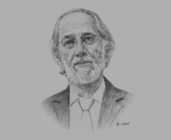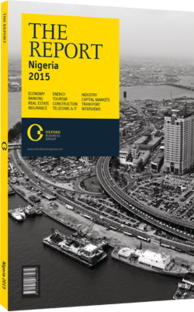Colin Cummings, Chairman and CEO, Swiss Pharma Nigeria: Interview

Interview: Colin Cummings
What challenges do local pharmaceutical manufacturers face in complying with regulations from the World Health Organisation (WHO)?
COLIN CUMMINGS: It can be very costly for local manufacturers to meet these regulations, which largely centre around upgrading facilities to standards laid down by the WHO. As most local companies are undercapitalised and have to rely on bank financing to fund short-term expenditure, this puts a great strain on their cash flow. Not only is there the expense of upgrading pharmaceutical plants and machinery, but also the systems and operating procedures must be thoroughly documented and staff trained to a much higher level.
Once all of this is done and the WHO certification obtained, there is still the second part of the process: prequalification of products. This step is likely to cost up to half a million dollars per product, depending on which ones you choose. Furthermore, the decision must be carefully considered so as to pick a product that is in demand by NGOs and donor agencies, which can be a difficult choice as these agencies change their products and practices according to which categories of disease they are currently focusing on. A few years ago antiretroviral (HIV/AIDS) drugs were in vogue, then it was Artesunate Combination Therapy drugs for malaria; now it is maternal health care. So it is critical to choose the right product from the start.
Once you have completed all this, what you find is that your costs for the local market have now increased because your plant is new, your supply of active pharmaceutical ingredients (APIs) must be from prequalified sources and you have higher salary costs to pay for more qualified staff. These outlays can put your costs up by 5-8%, which is difficult to pass on and thus directly impacts your profit. At the same time, you are unlikely to be able to offer cheaper prices than large multinationals when bidding for NGO or donor agency contracts. It is therefore imperative that the government give local companies preference over foreign ones or set minimum thresholds for local content.
How can local manufacturers become more cost-competitive with large international players?
CUMMINGS: There is currently no petrochemicals industry in Nigeria, so all APIs and excipients are manufactured overseas, mostly in Asia. This situation gives companies from that region a great competitive edge over Nigerian companies. Multinationals also have the advantage of economies of scale that are unavailable to local Nigerian companies. There must therefore be government support for local companies that choose to pursue this international standard and then achieve quality levels that are comparable with any country in the world. An emerging industry such as that in Nigeria needs nurturing and protection. All countries do this to grow their own fledging industries.
What are the main challenges posed by the counterfeit drugs market in Nigeria?
CUMMINGS: The National Agency for Food and Drug Administration and Control (NAFDAC) has come a long way on this problem and is to be commended. However, it is still a challenge. The obvious danger is the health risks to the population in taking a drug that is substandard, but there are also financial implications for pharmaceutical companies and the country.
The fake market has two main categories with varying levels of health risk. The first is a product copy, in which APIs are either low or non-existent. This can be life-threatening depending on the disease being treated, and the presentation and packaging of these vary from terrible to hard to tell from original. The other type is parallel imports, which are genuine products but not registered with NAFDAC and thus have been smuggled into the country. This business can range from suitcase smuggling of high-value specialised products for relatives or friends, which is basically harmless, to container-loads, which is harmful to business for domestic firms though it is no danger to the public. To be completely sure of what you are getting, it is always better to buy directly from distributors and reputable sources.
You have reached the limit of premium articles you can view for free.
Choose from the options below to purchase print or digital editions of our Reports. You can also purchase a website subscription giving you unlimited access to all of our Reports online for 12 months.
If you have already purchased this Report or have a website subscription, please login to continue.

